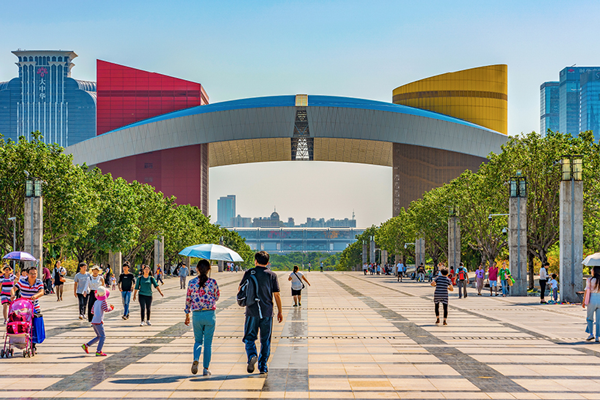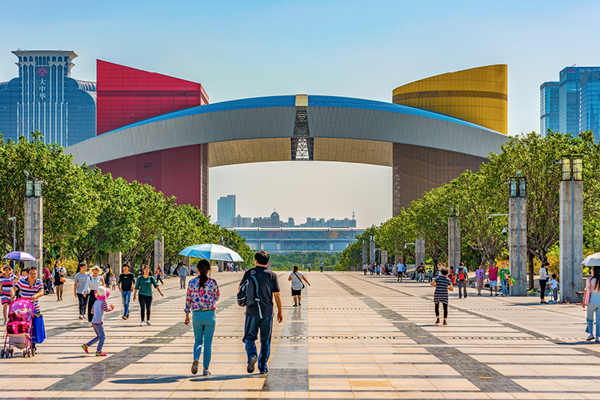
四十年前,深圳率先成为了中国改革开放中第一个经济特区,一举从南方边陲渔村成长为一座国际化大都市。最近,深圳发现自己再一次站在了聚光灯下,成为了新的先行示范区。律师们认为这项新政将大力振兴深圳的法律产业。
8月18日,中国发布了关于支持深圳建设先行示范区的意见。《意见》给深圳确定了高标准且时间紧迫的发展目标:到2025年,深圳要成为经济实力和创新能力世界一流的城市。
40年前,深圳作为中国改革开放中设立的第一个经济特区,享受了诸多先行先试政策优惠及优于其他地方的立法权,从边陲渔村发展为了年GDP2.24万亿元人民币的国际都市。深圳还先后经历过几次产业调整,如今汇聚了众多高新企业,被称为“中国硅谷”,中美贸易战中备受关注的华为、中兴、大疆等都是深圳本土公司。从曾经的特区到新的示范区,深圳未来的发展重点将聚焦于创新:产业布局上要实现以高新产业为主,将5G、人工智能和高端医疗作为创新重点,还将设立粤港澳大湾区大数据中心;此外还将伴生一系列的金融、法律、社会甚至制度创新。
距离新示范区的设立仅一月有余,但由于距第一阶段目标的实现只有6年,深圳政经法各界已然着手设立各项具体措施。对此,长期深耕于深圳当地的律所又有怎样的理解,并作何应对?
“要提高到国家战略层面去理解和解读新示范区。”万商天勤律师事务所管委会主任张志律师告诉ALB。“新示范区可以和当年的改革开放深圳确立为经济特区相提并论。”
广东华商律师事务所首席合伙人高树律师则强调,新示范区将深圳的竞技舞台扩展到了全球,“尤其在科技创新和国际法领域,深圳要对标纽约、伦敦这类世界先进城市。”
据高律师介绍,9月底,深圳市司法局出台了《贯彻先行示范区首批行动项目清单》,其中涉及建设法治政府、用足用好深圳特区立法权、增强公共法律服务能力、营造法治化营商环境等74项具体内容。
“各类经济主体在这个区域内,能获得宽松环境,对政策治理有预期,通过法治确保公平竞争、实现不同所有制主体合法权益的无差别保护。这些综合起来,就是国际一流的法治营商环境。”张律师说。“在示范区之前,国家在深圳已经做了全方面的布局,很重要的一点就是深圳以后会成为国际商事争议解决的一个中心。深圳律师从争议解决角度获取了巨大机会。”
《意见》中引人注意的一点,还在于允许深圳根据改革需要,“对法律、行政法规、地方性法规作变通规定”。高律师认为:“变通首要涉及的会是民生领域、科技创新、经济开放,以及国际规则的融合和借鉴。比如商事登记、企业除名制度、个人破产制度、身份管理制度、外商投资、企业走出去、外汇管理……这些可能都需要变通。”
服务创新与创新服务
未来,更多创新企业将落户深圳,在两位合伙人看来,律所为这类企业提供服务的关键在于知识产权领域。华商重新成立了知识产权专业委员会,万商天勤则成立了知识产权运营管理公司,“从科研中的专利预警、知识产权尽调,到专利、商标的申请维护和法律保护,各方面都提供一整套服务。”张律师告诉ALB。
在张律师看来,未来律所对于创新企业的服务还集中在其他两个方面,“ 一是在机制、体制上提供法律层面的策划服务。比如企业设立方式、激励措施的建立;二是为高新企业引入投资通过法律帮助,实现创新和资本对接。”
此外,对律所本身,“在战略布局上要跟得上。”高律师说。具体来说,“ 要有规模、有专业人才,并做好一带一路和大湾区布局。”华商已经围绕深圳开设了香港分所、澳门联营所,以及三亚、珠海、惠州分所,还扩充了企业合规、反垄断、反倾销、反洗钱等领域人才。
两位律师也都提到了未来深圳律所要更具备开放性。万商天勤将通过常设在深圳的V&T法律联盟,整合国际资源,服务中国企业。“深圳要成为国际都市,不可能只有中国律师在这里从事法律服务。”高树律师说,“竞争是压力,但合作也是机遇。
Second Coming
Four decades ago, the southern city of Shenzhen spearheaded China’s reform and opening-up drive, which turned it from fishing village to boomtown. More recently, it found itself in the spotlight again as China selected it as a pilot city for innovation. Lawyers say that this new avatar will provide a significant boost to the city’s legal sector.
About 40 years ago, Shenzhen was the very first Special Economic Zone set up according to China’s reform and opening-up policy. Benefiting from both political and economic liberalisation, Shenzhen grew overnight from a fish village into an international cosmopolis with an annual GDP of $300 billion. While initially an industrial town, Shenzhen is now a hi-tech hub boasting world-famous companies like Huawei, Tencent and DJI.
Now the city bordering Hong Kong is back in the spotlight once again after the national leadership granted it special status that will allow it to trial innovative ideas for growth. Under this pilot scheme, Shenzhen is expected to become one of the leading cities in the world by 2025 in terms of economic strength and capacity for innovation. The technology aspect is just one part of it. Apart from embracing cutting-edge areas like 5G, AI, biotech and Big Data, Shenzhen will also undergo a series of financial, legal and even political reforms.
“The new demonstration area should be understood at the level of National Strategy,” says Zhang Zhi, managing partner of V&T Law Firm. “It’s on the same level of the reform and opening-up policy of 40 years ago.”
Gao Shu, managing partner of China Commercial Law Firm, stresses that the new scheme pushes Shenzhen onto the international stage. “Especially in areas of technology innovation and international law, Shenzhen should set its eyes on cities like New York and London.”
With the clock ticking down to the completion of the first stage that is only six years away, the city has already outlined a roadmap of how it expects to get there. According to Gao, by the end of September, the Justice Bureau of Shenzhen had unveiled an action list comprising of 74 detailed measures to develop the legal aspects, including promoting the rule of law, better addressing the legislative power of the Special Economic Zone, enhancing the availability of legal services to the public, as well as developing the legal sector.
“All economic subjects could do business in relaxed environment. They could anticipate governmental behaviours by the rule of law. And the city could provide legal environment for fair competition and the protection of lawful rights. All those add up to what it means by a legal business environment mentioned in the Scheme,” Zhang says. “China has been building Shenzhen into an international commercial dispute resolution centre, which provides huge opportunities for local lawyers.”
REFORM AND INNOVATION
Another eye-catching sentence in the new scheme document is one that allows Shenzhen to “make flexible changes to laws, regulations and local ordinances according to authorization and based on Shenzhen’s need for reform and innovation.”
According to Gao, he expects the changes to happen “firstly in areas of people’s day-to-day lives, hi-tech innovation, the openness of the economy and the introduction of international rules. Business registration, individual bankruptcy, foreign investment and foreign exchange regulations… we might see changes in regulations concerning those areas pretty soon.”
Attracted by the scheme, a new generation of hi-tech startups is expected to blossom in Shenzhen, and both Gao and Zhang agree that there is a tremendous opportunity for law firms to provide high-quality legal services to them, particularly in IP. Anticipating this demand, China Commercial Law Firm has reconstituted its IP law committee, while V&T has set up a new company specialising in IP law and related services. “We will provide a whole circle of services, from patent early warning, to patent & trademark application and maintenance,” Zhang.
According to Zhang, law firms should also focus on the other two types of legal services targeted at hi-tech and startup companies. “The first is to provide legal advice related to the day-to-day running of the company. The second is to help the company work with potential investors and gain financing.”
Meanwhile, for the law firms themselves, “they have to keep up on strategic level, which means to scale up, to hire more talent and to better adapt to the Belt & Road Initiative as well as the Greater Bay area.” says Gao. In that regard, China Commercial has set up new branches in key cities like Hong Kong, Macau, Sanya, Zhuhai and Huizhou, and bolstered its corporate compliance, anti-trust, anti-dump and anti-money laundering departments.
Both Zhang and Gao also stressed the importance of being open-minded. V&T has set up the Shenzhen-headquartered V&T Alliance, intending to combine inter-national legal resources to better serve Chinese companies. “It is hard to imagine Shenzhen being a leading city on world level with only Chinese lawyers working here,” Gao says. “More global law firms would need to enter. The competition would be stressful, but the cooperation opportunities are alluring.”
To contact the editorial team, please email ALBEditor@thomsonreuters.com.



